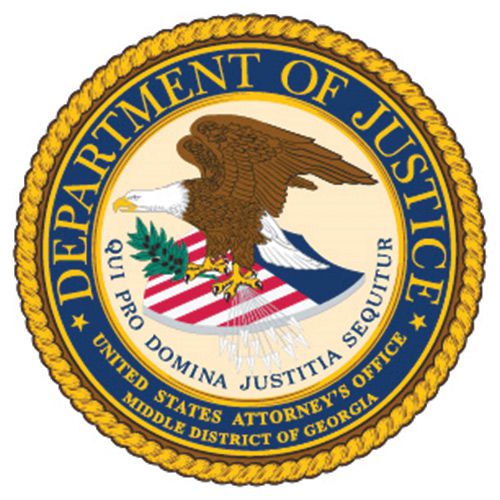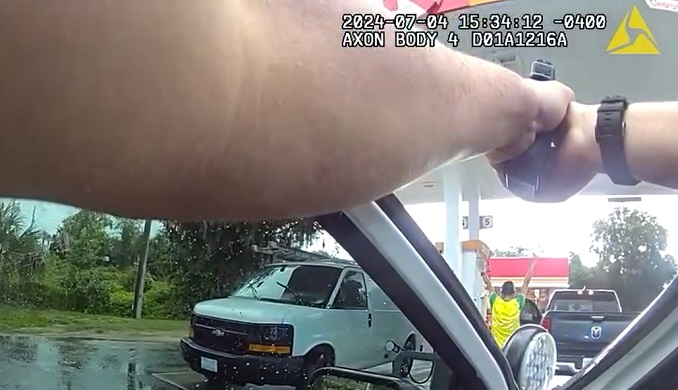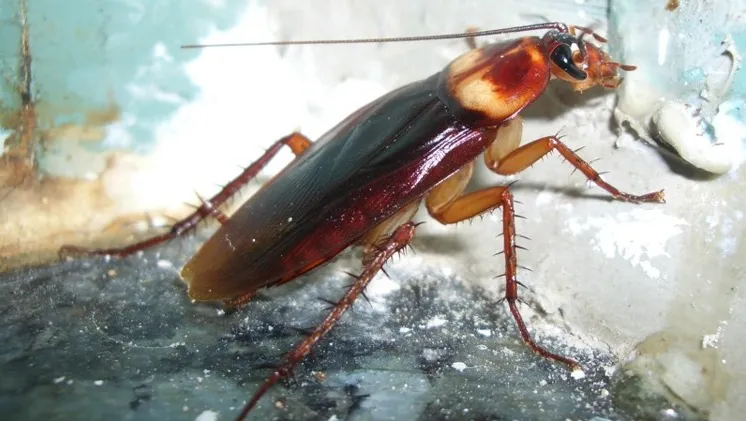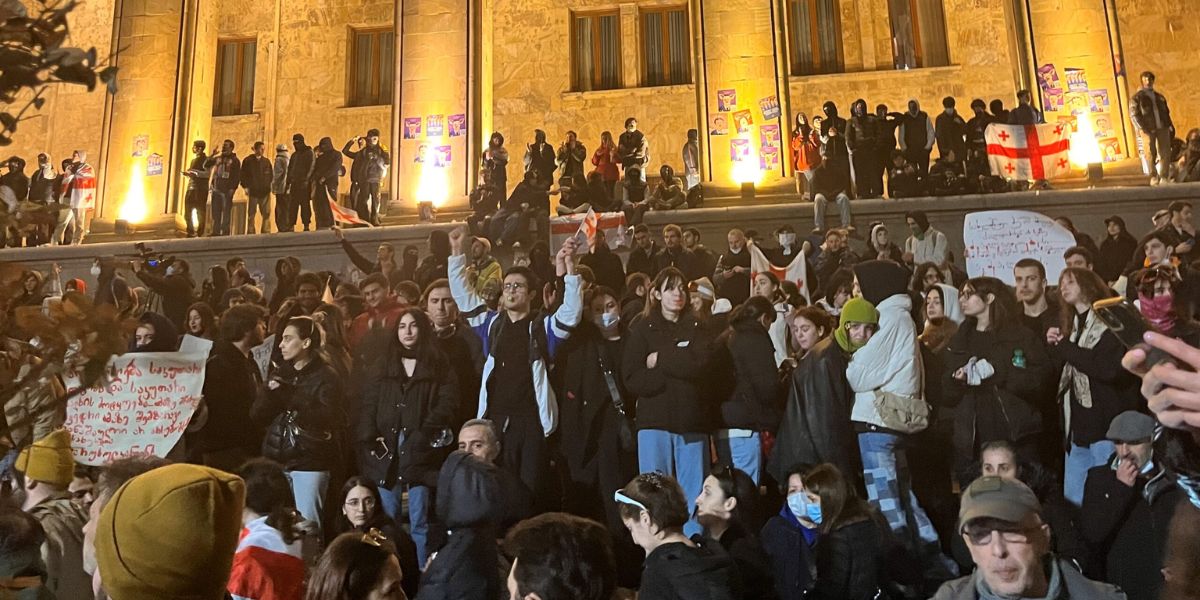Georgian Rights Leader Resists Government’s “Foreign Agent” Law Amid Smears!
Baia Pataraia, the president of Georgia’s biggest women’s rights organization, awoke last weekend to discover her apartment building in the capital Tbilisi covered in posters of her face and the words “foreign agent”.
The photographs were also affixed to the stairs leading to her front door, where the words “grant-eating lesbian” were spray painted in orange graffiti.
“My neighbors took them down, that was an amazing feeling,” recalled Pataraia.
- Auto Insurance Shopping Rises in Response to Soaring Insurance Rates: Report
- Avoid These 7 Missteps When Refinancing to a Lower Mortgage Rate
- Rising Home Prices Amid Slight Mortgage Rate Dip: Analysis
- Fresno County’s Groundbreaking Initiative: $500 Monthly Payments in New Guaranteed Income Program, Here is Who is Eligible
- Unlocking Financial Freedom: 5 Reasons to Opt for Personal Loans in Credit Card Debt Repayment
Activists, independent journalists, and opposition politicians have endured weeks of violence and threats since the former Soviet republic’s government published draft legislation last month targeting non-governmental organizations (NGOs).
Kansas Attorney General Sues Biden Administration Over LGBTQ+ Protections in Schools
- Will Everyone Get a $12,000 Stimulus Check in 2024? Find Out Eligibility
- $6400 Stimulus Checks in 2024: What You Need to Know About Eligibility and Payment Dates
- IRS 4th Stimulus Check 2024: Comprehensive Guide to Eligibility and Payment Dates
- 3 Smart Moves to Make Once Your Savings Reach $50,000, Here Are Crucial Actions to Take
- 3 Effective Ways to Pay Off Student Loans on a $50K Salary or Less, Know Here!
The government claims the measure is intended to provide “transparency,” alleging that foreign-funded organizations such as Pataraia undermine Georgia’s sovereignty.
However, rights activists and Western countries warn that it could jeopardize Tbilisi’s path to the European Union and exacerbate tensions in the Caucasus country, which has been plagued by polarization since its independence from the USSR in 1991.
Pataraia rejected the idea that she posed a threat. Sapari is a group that helps women who have experienced domestic violence and discrimination.
“Whatever I do, I do it for my people, my country, and definitely not for anyone else,” she stated.
Pataraia claimed that for months before the law was passed on Tuesday, the government had been tightening the screws on NGOs and launching a media campaign against them.
However, NGOs such as Pataraia’s remain defiant.
“I will never, ever register as a foreign agent,” she informed AFP.
‘Traitor’ posters
The bill, dubbed the “Russian law” because it resembled authoritarian laws initially approved by the Kremlin, triggered weeks of widespread protests.
If enacted, every institution or media group that receives at least a fifth of its funding from overseas would be required to register as a “foreign influence” agency.
Pataraia had already received similar posters. When the ruling Georgian Dream party originally attempted to enact the legislation last year, an image of her face and the epithet “traitor” were plastered throughout Tbilisi metro stations.
“But this is the first time they have come to our homes,” she continued.
Failure to register with authorities would result in impossibly high fines—or closure.
Similar posters threatening Eka Gigauri, the local leader of Transparency International, an anti-corruption NGO, were posted outside the Georgian offices.
Gigauri, an ardent opponent of Georgia’s administration, wasn’t shocked.
“The implication would be that they might freeze our assets,” the 46-year-old stated.
Transparency International has been in Georgia for 24 years, as have many other Western-funded organizations that emerged following Tbilisi’s independence.
Gigauri claimed that the group had been targeted for its revelations on corruption in Georgia, and that she would “never” agree to being labeled an agent or spy.
We may ‘cease to exist’
While officials have indicated that the measure will primarily target rights monitors, foreign-funded non-governmental organizations (NGOs) have played an important role in helping other humanitarian causes.
On the outskirts of Tbilisi, Nato Shavkaladze worried about how her safe shelter for women fleeing domestic violence would fare if the law was enacted.
Walking through the small structure that houses roughly 20 women, she told AFP that one floor was rebuilt with cash from the Polish embassy and another was funded by Japan.
“This fridge was donated by Israel,” she remarked in the shelter’s kitchen, noting that it had also received funding from Estonia.
As she spoke, kids played around, and a newborn slept in the front room.
“We are talking about saving lives,” Shavkaladze stated.
Georgia’s NGO network is heavily reliant on foreign contributions, with her group receiving only 20% of its income domestically.
“If we don’t register, we will probably cease to exist,” Shavkaladze remarked.
Sara Modzmanashvili-Kemecsei, on the other side of Tbilisi, was concerned about the future of her dog shelter.
“We are being labelled for doing something that is in the interest of the entire society,” she stated.
She was carrying boxes of contributions with her teenage daughter, who has taken an active role in protests.
“This is not about transparency,” she explained.
When asked what she thought of Georgian Dream’s billionaire supporter Bidzina Ivanishvili accusing NGOs of plotting revolution, she responded, “I would like him to come shovel dog shit with me and see how we are working to change the power.”
She pointed to the dogs. “These are the entities pursuing the interests of foreign powers!”











